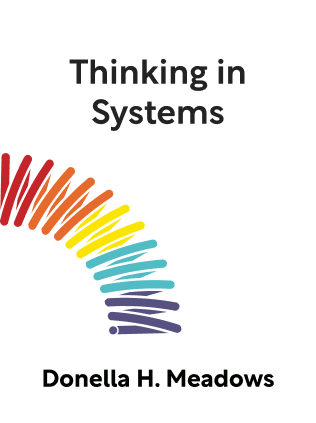
I've only listened to it via the audio version so far, but it's one that I would love to spend the care and time with it to highlight and take notes. Here's my affiliate link to get it on Amazon. It's a lot to take in and think about, and I'll be Thinking in Systems for as long as I can and would recommend this book to everybody. This is the mantra of modern society, but what's the cost? How does this affect our broad shared system in ways we haven't even begun to imagine? How does this attitude of "growth at all costs" affect the smaller sub-systems that we participate in? One of my favorite quotes from the book is:īefore you charge in to make things better, pay attention to the value that is already there. It made me think long and hard about the nature of the systems that I live in and around. These traps occur naturally and often by default if we don't consciously work to avoid them. "System traps" is presented as a simplified breakdown of common patterns that actively destroy systems. She digs into examples of systems, and the effects of the various actors and variables in a system and how the wide ranging effects of rapid growth or radical change in our systems can have catastrophic results, often irreversible. This book is extremely approachable, and Meadows peels back the layers of systems thinking so that we can better understand and use the systems that surround us in sustainable, productive, and (hopefully) harmonious ways. If everything is a system, why aren't we explicitly trained to think in systems?

It's not something that I remember studying directly in school, though just by the nature of systems everything that we study is part of one.

It is one of the most inspirational, terrifying, and absolutely essential texts that I've ever read. Meadows who was an environmental scientist.

Thinking in Systems is a wonderful book by Donella H.


 0 kommentar(er)
0 kommentar(er)
